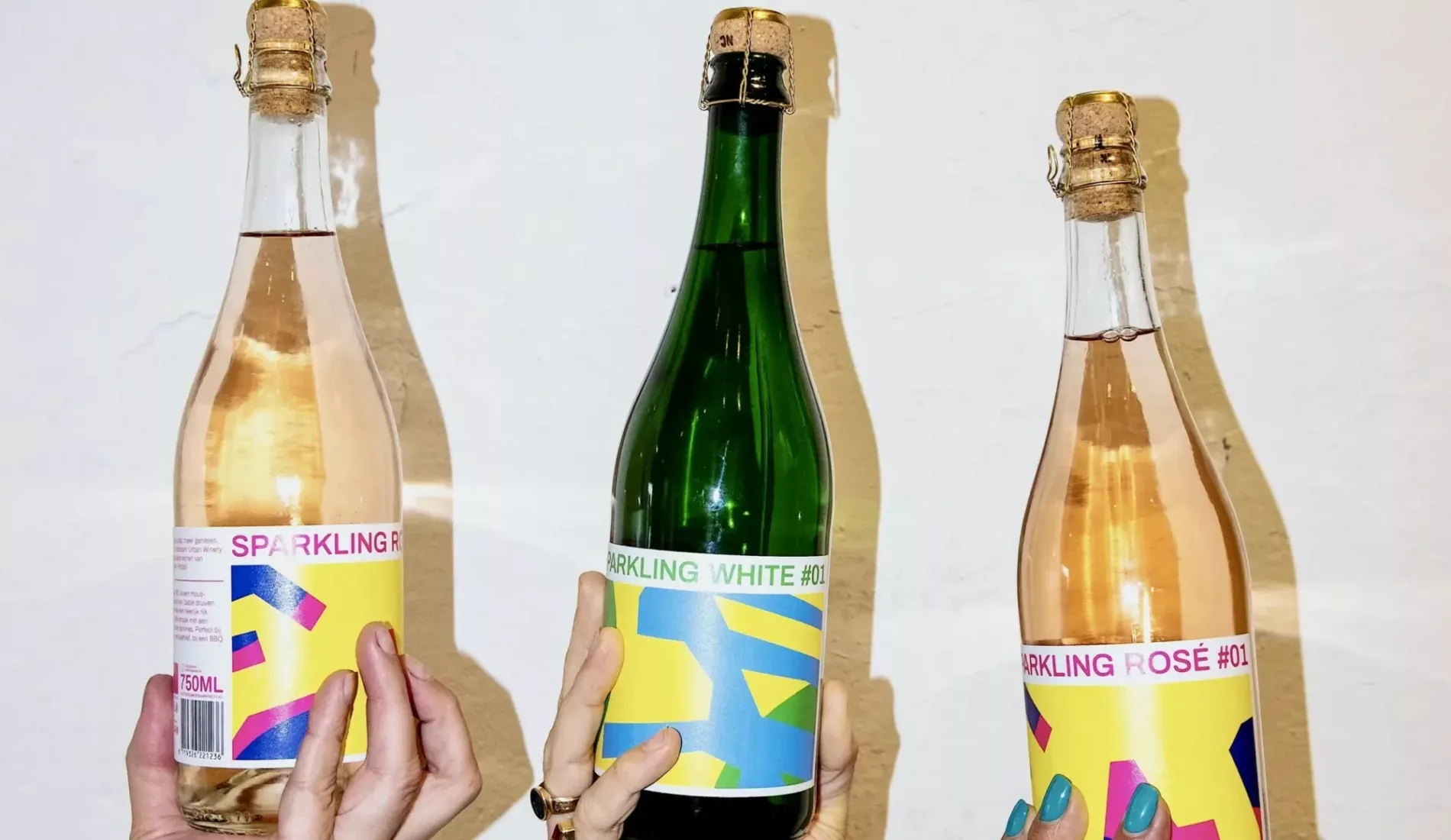Sometimes, as an editor, you stumble upon news that raises an eyebrow. That one odd innovation, an unexpected effect of climate change or a feat of human clumsiness. Remarkable, in other words. This week: wine from rescued table grapes.

Entrepreneur Wouter Bijl was presented with the question during the corona pandemic: Could we make wine from table grapes in danger of ending up in the trash? Bijl, who was familiar with producing cider from waste streams, initially thought it unlikely. Yet in the end, that's exactly what he did. He founded the Rotterdam Urban Winery, Holland's first circular wine producer.
That means: not growing grapes intended for wine production like other winemakers, but using discarded residual grapes. Table grapes, that is; the grapes you buy in supermarkets and put in the fruit bowl at home. In the Netherlands, about 1.5 million kilos of such grapes are wasted annually. This is because, for example, grape growers overproduce to meet the high summer demand and so many grapes are thrown away. But also because transport ships in the Suez Canal slow down to save fuel, causing bunches to spoil earlier. Strict quality requirements in Europe mean that such table grapes are soon rejected and thus no longer get a place in consumers' fruit bowls. Eventually, the trash can is the result.
Challenging food waste
An eternal shame, Bijl believes, since many of the grapes thrown away are still perfectly consumable. "The fact that we throw away perfectly usable food I actually find idiotic," believes he. "As consumers, we don't have a good idea of what is being thrown away. Our ambition is to challenge the problem of food waste by making the experience of sustainability more fun, more sociable ánd more delicious."
"Our ambition is to challenge the problem of food waste by making the experience of sustainability more fun, cozy and delicious."
Not pedantic
.The Rotterdam Urban Winery collects rejected table grapes - over 8,000 kilos by now - and then turns them into wines. So far, two varieties: a white wine and a rosé, both sparkling and suitable for a sunny day on the terrace. According to Foodlog, passionate vinologists may not give the wines high marks, but then that is not Bijl's goal. "Not pedantic, not too expensive, but rather nicely accessible. Our wines may never become a Grand Cru, but they don't have to. We want in a fun and tasty way to help the United Nations in its goal of halving food waste by 2030."
Circular wine production
In the Keilepand in Rotterdam (a former warehouse where sustainable companies can rent office space), Bijls Urban Winery has set up a laboratory. In it, the company is tinkering with its wines and exploring new possibilities for circular wine production. The goal is to eventually save hundreds of thousands of pounds of table grapes from the trash. It is also thinking about capturing and reusing CO₂ and water, as well as collecting and reusing the bottles. It is also looking at using leftover grapes for other alcoholic beverages, for example grappa.
Source: change.inc